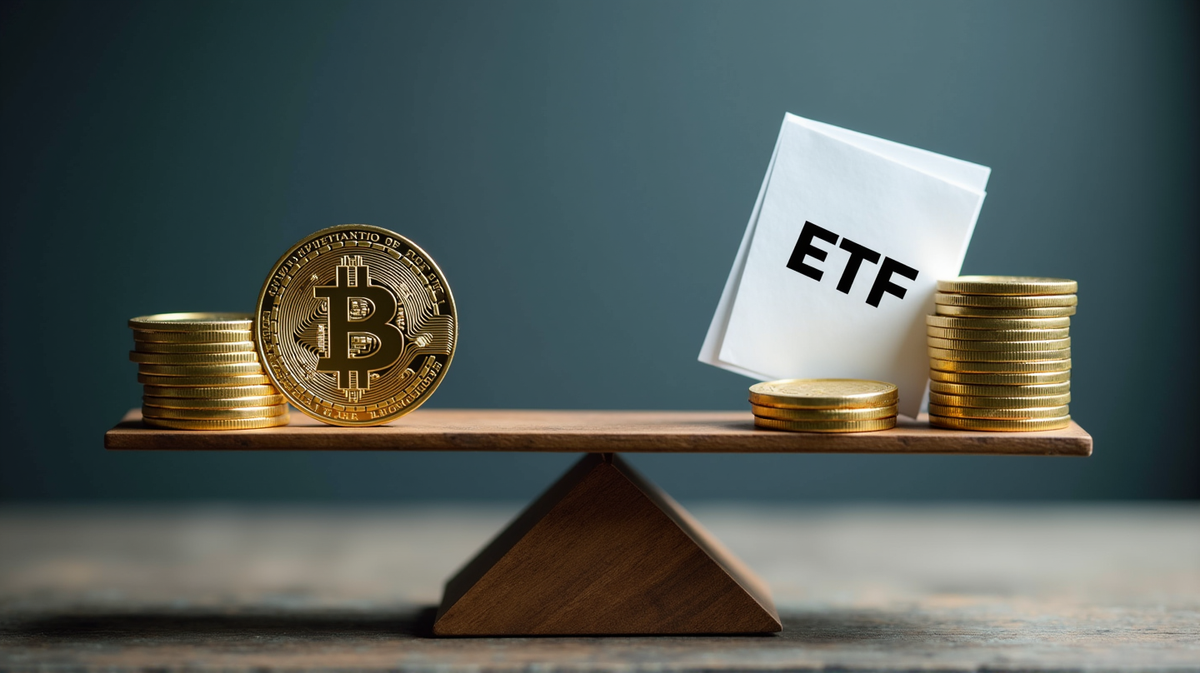Decoding Bitcoin ETFs: The Mirage of Ownership
Uncover the realities of Bitcoin ETFs versus direct ownership, highlighting investment risks, benefits, and the necessity for informed financial decisions.

In the ever-evolving landscape of cryptocurrency investment, the Bitcoin ETF has emerged as both a beacon of opportunity and a source of heated debate. While many see these financial products as a seamless entry into the crypto market, others warn of the illusion they may represent compared to direct Bitcoin ownership.
The Illusion of Accessibility
Bitcoin ETFs often lure investors with promises of accessibility and ease. Yet, the comparison made by financial educator Robert Kiyosaki—likening Bitcoin ETFs to holding a photograph versus the physical heft of a weapon—nicely captures their intangible nature. During tumultuous times, real Bitcoin owners enjoy unparalled sovereignty over their assets, free from the constraints that ETF contracts may impose.
The financial world has seen the staggering rise of Bitcoin ETFs, with a valuation peaking at $152.73 billion. But this convenience could come at the cost of missing out on the core benefits of direct Bitcoin ownership—like security and self-custody.
Navigating ETF Risks
As traditional economies falter, the allure of Bitcoin ETFs grows. However, beneath the veneer of simplicity lie complex, paper-based agreements that may not necessarily reflect the real-time value of Bitcoin. The stocks in these ETFs can underperform significantly compared to Bitcoin’s actual value, especially when market volatility is at its zenith.
Industry giants BlackRock and Fidelity attract billions into their ETFs, emphasizing the sheer volume of investor interest. Markets might be booming, but without critical foresight, the uninformed investor may find themselves unprepared for the fluctuations inherent within these investments.
Bitcoin’s Changing Identity
Bitcoin has evolved from a speculative asset to a player in the realm of environmental, social, and governance (ESG) investing. The ethical dimensions of Bitcoin appeal to socially conscious investors seeking both profit and purpose. Direct Bitcoin ownership stands as an appealing proposition for these individuals, offering them agency over their assets while aligning with their personal values.
Holding actual Bitcoin secures its role as a hedge against inflation and geopolitical instability, much like traditional tangible assets such as gold and silver.
Educating Investors for Informed Choices
Distinguishing between Bitcoin ownership and the ETF approach is crucial, calling for heightened financial literacy. Understanding these differences empowers investors to make strategic decisions that align with their long-term goals. Engaging in community dialogues, accessing cryptocurrency education tools, and participating in discussions can provide the insights needed to navigate this financial terrain effectively.
Conclusion: Charting the Right Path
Embracing either Bitcoin ETFs or direct ownership reveals a spectrum of avenues and challenges. While the ETF may seem appealing, its simplicity masks a complex and risky nature. As Kiyosaki reminds us, owning tangible assets like Bitcoin grants a sense of control and security that is indispensable in today’s financial climate.
Investing is more than just acquiring assets; it’s about understanding and wielding the power of ownership. Step into the future empowered by Bitcoin’s inherent potential and secure your financial journey now and beyond.
According to OneSafe, these insights provide a crucial understanding for potential investors navigating the realm of Bitcoin investments.





